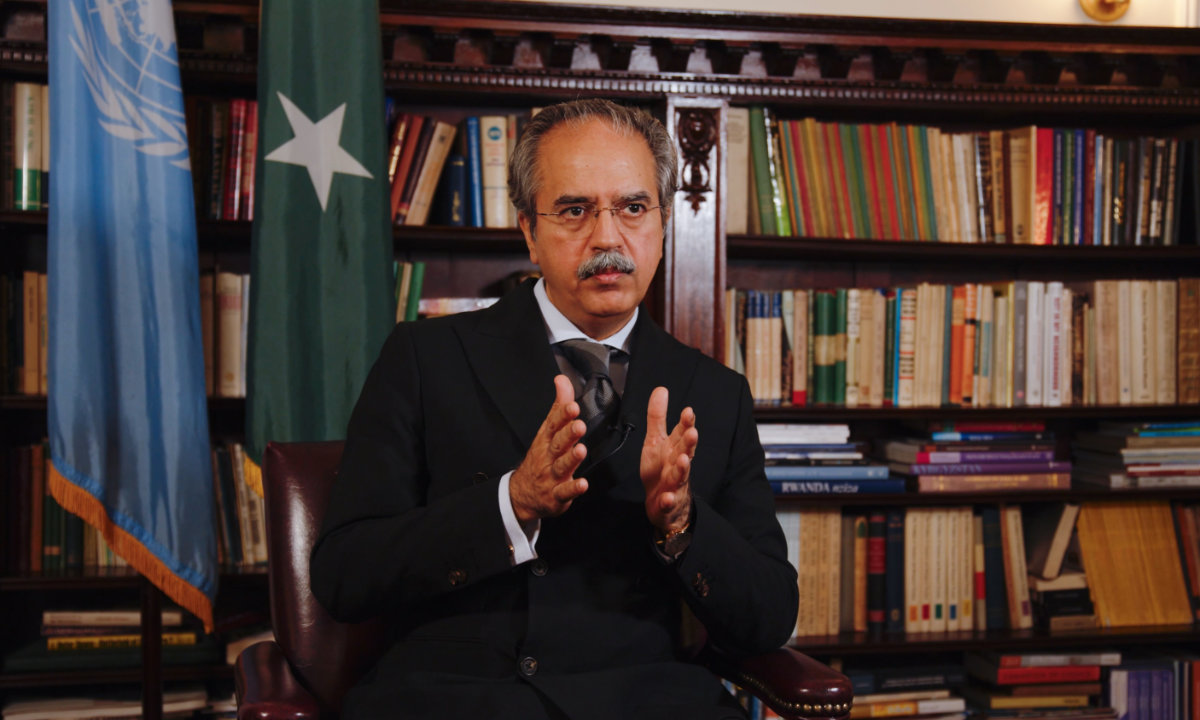BEIRUT: The commander of the UN peacekeeping mission in Lebanon, Gen. Aroldo Lazaro, warned on Wednesday of the continuing danger of escalation in the conflict between Israel and Hezbollah along Lebanon’s southern border.
He said the UN Interim Force in Lebanon “calls for a return to the cessation of hostilities and a move toward a permanent ceasefire and a long-term solution to the conflict.” There can be no military solution, he added, a political and diplomatic solution is the only way forward.
“Almost 50 countries send peacekeepers to southern Lebanon out of a sense of commitment, friendship and a belief that long-term peace is possible for the region,” said Lazaro. “Over 46 years, we have developed strong bonds with the communities in which we have lived and worked.
“Since October, UNIFIL has continued to call on the parties to respect their commitments under Resolution 1701 and has maintained its operational activities aimed at lowering tensions and preventing escalation.”
Resolution 1701 was adopted by the UN Security Council in 2006 with the aim of resolving the war at the time between Israel and Hezbollah.
“The mission has also provided medical, dental, and veterinary care in villages across south Lebanon; supplied solar-energy systems to villages, civil defense and schools; donated needed equipment to schools, hospitals and first responders; and given infant formula and flour to people in need, among many other projects,” Lazaro continued.
“We have also liaised with the parties to ensure the safety of workers repairing critical civilian infrastructure damaged in the exchanges of fire or to facilitate the provision of humanitarian assistance. We will continue to be here for the people and to stand for peace, as long as it takes.
“Regardless of faith or background, we urge all parties to embrace the spirit of unity and compassion that Eid represents and seek the path of peace.”
Lazaro’s appeal came as Israeli forces carried out air and artillery strikes on Wednesday in the vicinity of several border towns, including Kfarkela, Dhaira, Yarine and Alma Al-Shaab. Residential neighborhoods in the towns of Odaisseh, Kfarkela and Blida came under machine gun fire and intermittent shelling.
In Israel, the Kiryat Shmona settlement was targeted by missiles. Israeli media said sirens sounded in the vicinity of the settlement, the Iron Dome air-defense system was activated, and an interceptor missile exploded over the Lebanese border town of Blida.
On the first day of the Eid Al-Fitr holiday, the movement of civilian residents of towns close to the front lines of the fighting was largely limited to visits to cemeteries.
Hezbollah has reported 274 deaths among its members in the six months since the Oct. 7 attacks by Hamas on Israel, mostly in border towns and the Baalbek-Hermel region.
Meanwhile, Mohammed Srour, a 57-year-old money changer who had been missing for days, was found shot dead inside a house in Beit Meri, Mount Lebanon. He was reportedly under sanctions by the US Department of the Treasury for “facilitating the transfer of funds from Iran to the military wing of Hamas.”
His body was discovered on Tuesday along with an undisclosed sum of money his killers ignored, Lebanon’s National News Agency reported. Other media sources said “the gun used to kill the victim was found soaked with bleach to remove fingerprints and glove traces,” and security cameras “showed that he entered the house and never left. The tenant of the house went off the grid once the crime was committed.”
In August 2019, the US Treasury imposed sanctions on several people, including Srour, for funneling “tens of millions of dollars” from the foreign operations arm of Iran’s Revolutionary Guards through Hezbollah in Lebanon “to Hamas for terrorist attacks originating from the Gaza Strip.”
Officials in Washington said Srour “served as a middle man” between the Revolutionary Guards’ Quds Force and Hamas, “and worked with Hezbollah operatives to ensure funds were provided” to Ezzedine Al-Qassam Brigade, the armed wing of Hamas.
“As of 2014, Srour was identified as in charge of all money transfers,” the Treasury said, adding that he had “an extensive history working at Hezbollah’s sanctioned bank, Bayt Al-Mal.”
Washington blacklisted the bank in 2006. The Treasury’s Office of Foreign Assets Control described it as “an institution owned, controlled or operated by, for or on behalf of Hezbollah.”






























